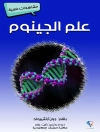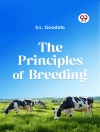This book elucidates the sustainable production of commercially important biomolecules in medicines, food, and beverage processing, through biological systems, including microorganisms, animal cells, plant cells, tissues, enzymes, and in vitro. It discusses promising technologies for the manipulation of cells including, genetic engineering, synthetic biology, genome editing, and metabolic engineering. The initial chapters of the book introduce topics on biomanufacturing, circular economy, strain design and improvement, upstream and downstream processing. The subsequent chapters cover artificial intelligence-assisted production, designer cell factories, biosensors for monitoring biomolecules, different cells factories, biosynthetic pathways, and genome editing approaches for scale-up biomanufacturing. Lastly, the book discusses the opportunities and challenges of implementing biological systems for the production of biomolecules.
This book is a valuable source for students, researchers, scientists, clinicians, stakeholders, policymakers, and practitioners to understand biomanufacturing for the sustainable production of biomolecules.
Spis treści
Chapter 1. Strain design and optimization methods for sustainable production.- Chapter 2. Designer and minimal cells for production of biomolecules.- Chapter 3. Recent advances in downstream processing deployed in the treatment of pharmaceutical effluents.- Chapter 4. Microbial conversion of waste to biomolecules.- Chapter 5. Biosensor for detecting biomolecules.- Chapter 6. Artificial Intelligence Assisted Production of Biomolecules.- Chapter 7. Escherichia coli cell factory for synthesis of biomolecules.- Chapter 8. Bacillus subtilis cell factory.- Chapter 9. Pseudomonas putida cell factory.- Chapter 10. Cyanobacteria for marine based biomolecules.- Chapter 11. Yeast cell factory for biomolecules.- Chapter 12. Plant cell factory for biomolecules.- Chapter 13. Genetic manipulation of crop for enhanced food quality and nutrition towards sustainable production.- Chapter 14. Insect cell factory for production ofbiomolecules.- Chapter 15. Mammalian cell factor for biomolecules.- Chapter 16. Genome editing guided production of biomolecules.- Chapter 17. Cell free protein synthesis system for sustainable production of biofuels.- Chapter 18. Challenges and opportunities in biomanufacturing.
O autorze
Dr. Vijai Singh is an Associate Professor and Dean (Research and Innovation) in the Department of Biosciences, School of Science at Indrashil University, Rajpur, Mehsana, Gujarat, India. He was an Assistant Professor in the Department of Biological Sciences and Biotechnology at Institute of Advanced Research, Gandhinagar, India and also an Assistant Professor in the Department of Biotechnology at the Invertis University, Bareilly, India. Prior to that, he was a Postdoctoral Fellow in the Synthetic Biology Group at the Institute of Systems and Synthetic Biology, Paris, France and School of Energy & Chemical Engineering at the Ulsan National Institute of Science and Technology, Ulsan, South Korea. He received his Ph.D. in Biotechnology (2009) from the National Bureau of Fish Genetic Resources, Uttar Pradesh Technical University, Lucknow, India. During his Ph D, he has cloned, expressed and characterized hemolysin from Aeromonas hydrophila in Escherichia coli. He has extensive experience in MAGE, small regulatory RNAs, pathway designing, CRISPR-Cas systems, and microfluidics. His research interests are focused on building novel biosynthetic pathways for production of medically and industrially important biomolecules. Additionally, his laboratory is working on CRISPR-Cas9 tools for genome editing. He has more than 10 years of research and teaching experience in synthetic biology, metabolic engineering, microbiology, and industrial microbiology. He has published more than 80 research articles, 51 book chapters, 16 books and 4 patents. He serves as an associate editor, editorial board member and reviewer of a number of peer-reviewed journals. He is also a member of the Board of Study and Academic Council of Indrashil University and is the Member Secretary of Institutional Biosafety Committee (IBSC) in the same University.
Prof. Ir. Ts. Dr. Pau-Loke Show is founder and the former President of International Bioprocessing Society in Malaysia. He also the director of Sustainable Food Processing Research Centre and Co-director of Future Food Malaysia, Beacon of Excellence, in the University of Nottingham Malaysia. He is a Full Professor at the Department of Chemical and Environmental Engineering, Faculty of Science and Engineering, University of Nottingham Malaysia. He has successful obtained his Ph D in two years’ time after obtaining his bachelor’s degree from Universiti Putra Malaysia. In the year of 2022, he is elected as a Fellow of IChem E (FIChem E). He is currently an Asian Professional Engineer (PEng) registered with the Board of Engineers Malaysia, Fellow of the Engineering Council UK (CEng), Cooperate Member of The Institution of Engineers, and Professional Technologies (PTech) registered with the Malaysia Board of Technologists. Prof Ir. Ts. Dr. Show obtained the Post Graduate Certificate of Higher Education (PGCHE) in 2014 and is now a Fellow of the Higher Education Academy (FHEA) UK. Since he started his career in 2012, he has received numerous prestigious academic awards, including the Highly Cited Researcher 2022, Tan Sri Emeritus Professor Augustine S H Ong International Special Award on Innovations and Inventions in Palm Oil 2021, APEC Science Prize for Innovation, Research and Education (“ASPIRE”) Malaysia Award 2020, Malaysia Young Scientist 2019 Award, ASEAN-India Research and Training Fellowship 2019, The Da Silva Award 2018, JSPS Fellowship 2018, Top 100 Asian Scientists 2017, Asia’s Rising Scientists Award 2017 and Winner of Young Researcher in IChem E Award 2016. He has graduated more than 20 Ph D and MSc students and is leading a team of 20 members consisting of postdoctoral, Ph D and MSc research students. Up to 2022, he has published more than 850 journal papers in less than 10 years of his career. His publications have been cited over 18, 000 times over the past 5 years. His current h-index is 70, placing him among the top leaders of his chosen field (Microalgae Technology). He is also the Primary Project leaders for more than 35 projects from International, National, and Industry Projects, with total amount more than MYR5.0 million. He is now serving as an Editor-in-chief in Current Nutrition & Food Science, Editor in Scientific Report, Biocatalysis and Agricultural Biotechnology, Associate Editor at Bioengineered; Current Biochemical Engineering; The Open Microalgae Biotechnology, and Editorial board member in Bioresource Technology and, Biochemical Engineering Journal. He also managing lead guest editor for many well reputation journals, examples, Journal of Hazardous Materials, Elsevier; Biofuel Research Journal, Elsevier; Environmental Pollution, Elsevier; Chemosphere, Elsevier; Clean Technologies and Environmental Policy, Springer; Bioengineered, Taylor & Francis; Processes, MDPI; Energies, MDPI; Biocatalysis and Agricultural Biotechnology, Elsevier; Frontiers in Energy Research, Frontiers; BMC Energy, Springer Nature; Materials Science for Energy Technologies, Ke AI; Current Nutrition & Food Science, Bentham Science. Prof Ir Ts Dr Show is an active reviewer for more than 100 esteemed international journals published by Nature, Science, Cells, Elsevier, Wiley, Springer, ACS, RSC and Taylor & Francis publishers. He has been recently awarded as the Top Peer Reviewer 2019 powered by Publons (Top 1% of Reviewers in Global Top Peer Reviewer Awards in Engineering, Global Top Peer Reviewer Awards in Cross-Field, Global Top Peer Reviewer Awards Chemistry, Global Top Peer Reviewer Awards in Biology and Biochemistry, Global Top Peer Reviewer Awards in Agricultural Sciences). Also, he has acted as a handling editor for more than 1000 submitted manuscripts in numerous journals.












